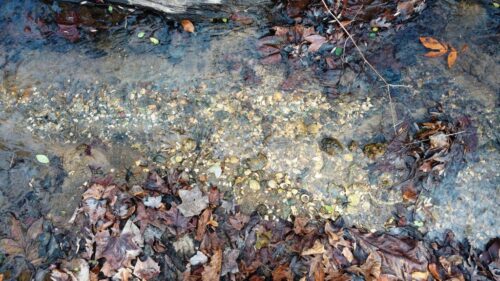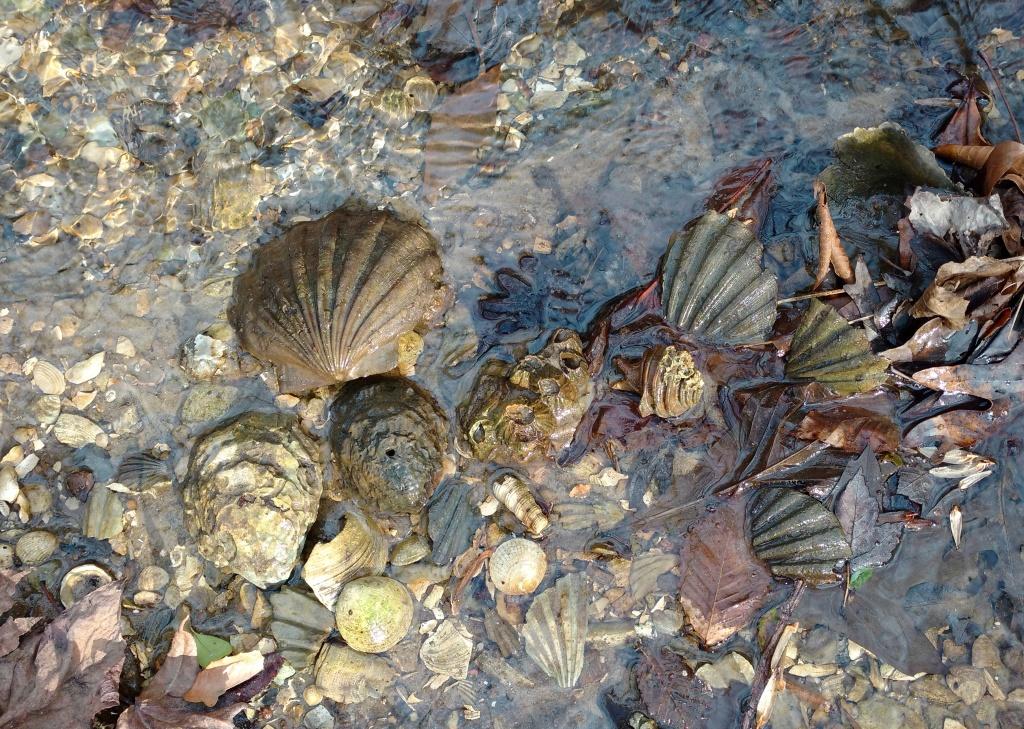Field Notes: What’s in the Woods Today? Dec. 27, 2017
December 27, 2017 11:45 am

by Area Forester Lisa Deaton
Creek Treasures
An important skill for foresters is hopping across creeks without falling in, especially during cold weather. Last week, I was mapping creeks alongside a cutover to assist a landowner with a Riparian Buffer Tax Credit application. Wooded buffers along streams, rivers and the Chesapeake Bay are called riparian forests and help protect our water quality. Virginia landowners can receive a tax credit for preserving riparian forest buffers along waterways during a timber harvest operation.
Usually, creeks in the Coastal Plain have muddy bottoms, so the gravelly looking area of this creek made me stop to look closer.

The rocky looking objects are all fossils from the Yorktown Formation, which is a layer of bedrock formed during the Pliocene Epoch, 2.5 – 5 million years ago. There are two fossilized oyster shells in the lower left, and the large scallop shell above them is the Virginia state fossil, Chesapecten jeffersonius. In the center is a clump of fossilized barnacles. There are several other familiar shell shapes as you examine the photo more closely.
Creeks and riverbanks in the Coastal Plain can reveal these fossils as water cuts through the exposed outcrops of the Yorktown Formation. This creek was part of the ocean bed 4 million years ago, but it is 45 miles away from the edge of the Atlantic Ocean today.
Tags: Chesapeake Bay, Riparian Forest Buffers, Water Quality, What's in the Woods Today
Category: Water Quality